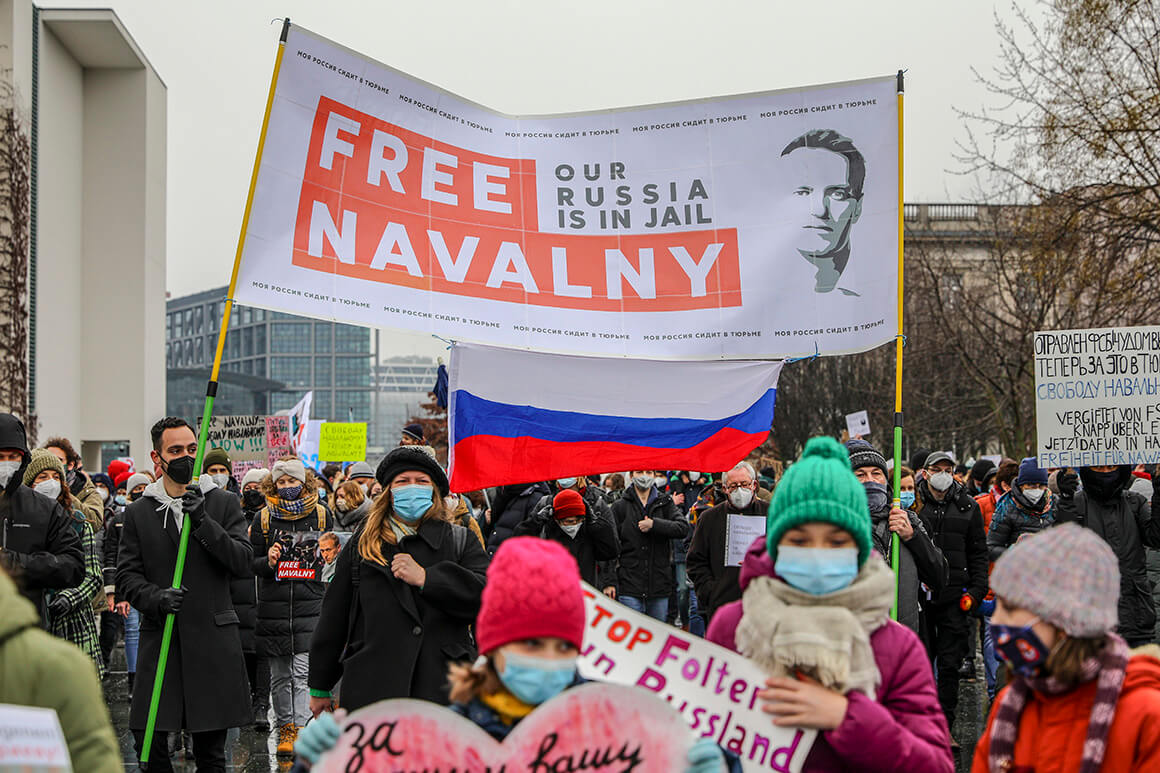Neil Bush, the Head of the United Kingdom’s Delegation to the Organisation for Security and Co-operation in Europe (OSCE), used his speech to the Permanent Council to deny Russia’s deteriorating human rights situation.
The speech focused on four examples to highlight the UK’s concern; the arbitrary detention of Alexey Navalny, the “politically motivated prosecution” of Yuri Dmitriev; the ongoing persecution of Jehovah’s Witnesses and the sixth anniversary of the murder of Boris Nemstov.
Neil Bush reiterated previous calls made by the UK in the Council of Europe and the UN Human Rights Council to call for the “immediate and unconditional release” of Alexey Navalny, Opposition politician and fierce Kremlin critic who was poisoned by Russian security forces last August. Navalny was arrested immediately upon his return to Russia following his recovery in a German hospital and is now serving a three and a half year prison sentence for supposedly violating his parole from a suspended sentence in 2014.
Mr. Bush also condemned the detention of Yuri Dmitriev, a civil rights activist and historian jailed for 13 years in September 2020. Dmitriev was found guilty of sexually assaulting his adopted daughter. However, ambassador Bush stated the UK:
“believe[s] Mr Dmitriev’s case is a politically-motivated prosecution, triggered by his work as a historian and representative of the human rights organisation Memorial”
The UK’s third point of criticism focused on the “concerning situation of Jehovah’s Witnesses in the Russian Federation”. Mr. Bush stated:
“The 2017 ruling of the Russian Supreme Court, which rejected the appeal against the decision to categorise Jehovah’s Witnesses as “extremists”, criminalised the peaceful worship of 175,000 Russian citizens and contravened the right to religious freedom that is enshrined in the Russian Constitution, and in multiple OSCE commitments.”
Lastly, the speech noted that 27 February 2021 marked the sixth anniversary of the muder of Boris Nemtsov, a then leading figure within the Russian opposition.
Ultimately the ambassador reminded Russia:
“that as an OSCE participating State, they have freely signed up to a series of commitments in the OSCE’s human dimension which they must uphold.”
The speech follows a week of international condemnation of Russia, with UN Special Rapporteurs Agnès Callamard and Irene Khan concluding on Monday 1 March 2021 that Russia was “responsible for the attempted arbitrary killing of Mr. Navalny”.
The independent experts, who are appointed by the UN Human Rights Council but are not UN staff nor are they paid by the organisation, presided over a four month investigation into the case of Navalny. In a press conference in Geneva, Ms. Callamard, the Special Rapporteur on extrajudicial, summary, or arbitrary executions, said:
“It is also the findings of our work that the poisoning and attempted killing of Mr. Navalny, along with the lack of investigation and the denying narratives, are part of a larger trend, ongoing over several decades, of arbitrary killings and attempted killings, including through poisoning, by the Russian authorities of journalists, critics and dissidents and are therefore consistent with an overall pattern of modus operandi”
In a coordinated effort on 2 March 2021, the EU and US also targeted Russia with further sanctions over Navalny.
The Council of the EU imposed punitive measures on the head of Russia’s investigative committee, Alexander Bastrykin; the prosecutor-general, Igor Krasnov; the head of the national guard, Viktor Zolotov; and the head of the federal prison service, Alexander Kalashnikov.
Meanwhile, the U.S. Treasury, State and Commerce departments imposed broader sanctions on seven senior Russian officials – whom the White House did not identify.
This visible diplomatic salvo against Russia highlights the growing concern of the international communities over human rights abuse and the Kremlin’s impunity to change.

